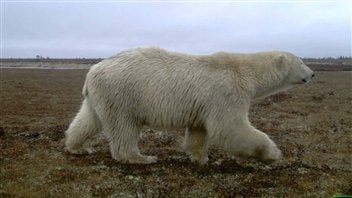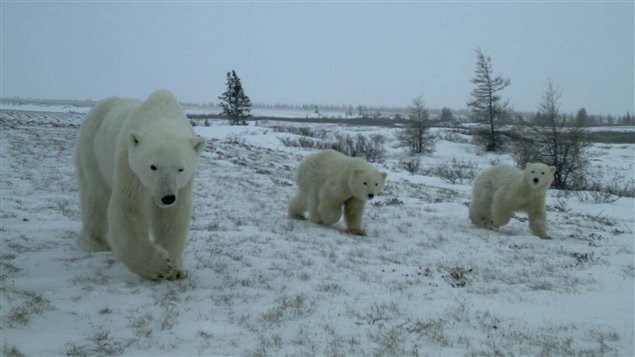It seems counter-intuitive, but a Canadian researcher says a ban on hunting and the international trade in polar bears is not the way to protect them. He adds that polar bear hunting is strictly controlled in Canada, is well-managed by the Inuit, Inuvialuit, and territorial governments, and that the international trade in polar bears is already controlled.
Additionally, Douglas Clark says hunting, and trade in polar bear products is not what currently poses a threat to the species.

Dr. Clark holds the Centennial Chair in Human Dimensions of Environment and Sustainability at the University of Saskatchewan. He is an expert on northern wildlife conservation, with a particular emphasis on polar bear – human interaction.
Professor Clark notes polar bear products are important for Inuit livelihoods in Canada as a food source, for clothing, and for limited sale to provide additional income.
Northern communties negotiate hunting quotas with government wildlife managers, and only a small percentage of those quotas are then sold by them to outside hunters, who may or may not actually kill a bear.
Last month delegates to the Convention on International Trade in Endangered Species of Wild Fauna and Flora (CITES) voted against a US proposal to prohibit or severely limit cross-border trade in polar bears.
That proposal divided conservation groups but was not supported by the International Union for Conservation of Nature (IUCN) Polar Bear Specialist Group, representing the polar bear scientific community, or even by the CITES Secretariat itself.
However, some conservationists and animal welfare groups were upset with the CITES decision but Dr. Clark feels they don’t fully understand the situation.
According to Dr. Clark, the idea of governments supporting a ban on trade in polar bears and products, is disingenuous. He points out that had CITES voted in favour of a trade ban, it wouldn’t have any effect on the number of bears hunted in Canada anyway. But It would allow governments to have a public platform to say they are doing something to preserve the species, while in fact not actually addressing the issue of climate change which he says, is the actual threat to the species.

He also notes that climate change is not a smooth and linear process and that it is, and will, affect the 19 populations of bears around the circumpolar Arctic in different ways, and to differing degrees.
This only adds to the complexity of the situation because it allows for the “cherry-picking” of data to support both those who do not wish to take action to deal in a substantive way with climate change, as well as those who seek to use polar bears as a symbol to compel governments to limit greenhouse gas emissions.
Dr Clark says both sides argue so strenuously against each other, that northern peoples’ observations – which are important – simply don’t get heard amidst the controversy. However amidst the discussion, he notes that the far north is warming, and that sea ice is diminishing much more rapidly throughout the circumpolar Arctic than has been projected. This appears to be leading to an increase in conflicts between polar bears and people.
RCI’s Marc Montgomery reached Dr Clark at his university office in the western city of Saskatoon.







For reasons beyond our control, and for an undetermined period of time, our comment section is now closed. However, our social networks remain open to your contributions.